In April 2022, the world stopped to take note of a Miss Universe who was seen gaining weight weeks after her international win. Blogs were written, and social media stories were uploaded criticizing Harnaz Sandhu for gaining weight during her reign as Miss Universe. The 21-year-old was bullied, earlier for being too skinny and then for being plump, almost overnight.
Harnaz came forward to address what was truly going on. She opened up about her struggle with Celiac Disease, an autoimmune disorder caused when you eat gluten, a protein found in wheat, barley and rye.
If someone suffering from celiac disease eats food which contains gluten, their body overreacts to the protein and damages their villi, small finger-like projections found along the wall of their small intestine. And if your villi are injured, your small intestine is not able to absorb nutrients from food. Gaining weight after starting a gluten-free diet is common in people diagnosed with celiac disease, which is what was happening with Harnaz.
The media, influencer and blogger community took note. For once, gut health came to the forefront, mainly because it affected vanity and aesthetics but as a byproduct, started a conversation, a much-needed conversation that we’ve never had in the public eye.
For many of us, the gut is an afterthought – a distant worry that’s pushed away for another day. But we’ve never been more wrong than to brush it aside. Now, more than ever before, science has a greater understanding of the connection between our gut and our overall well-being. Read on to discover how you can listen to your gut to maximize your health and well-being with lifestyle interventions.
How does our digestive system work?
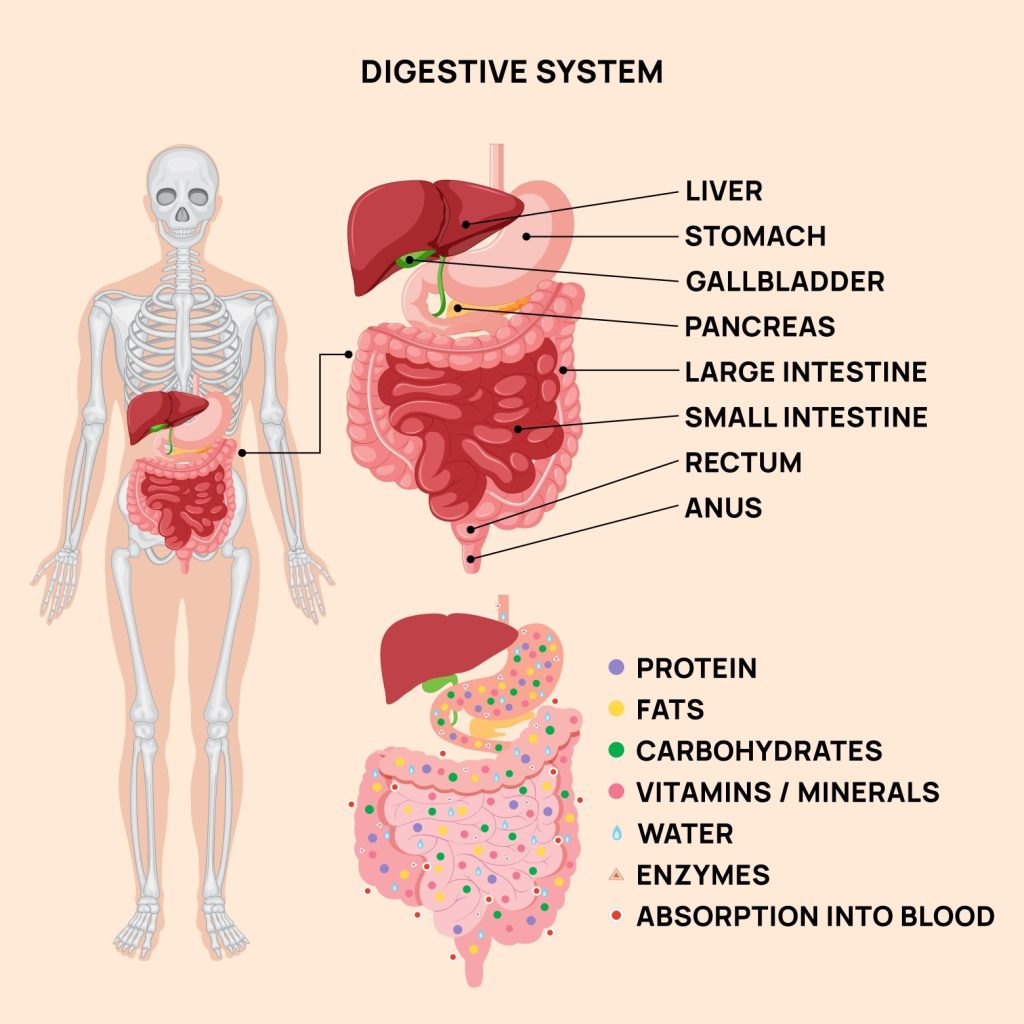
Most of us studied this in school, but it is imperative to remember what happens in the gut and why it happens. When it comes to digestion, the process starts in the mouth. As we chew, our saliva helps break down food into smaller pieces and begins to break down starches. From there, the food travels down the oesophagus and into the stomach where it is mixed with stomach acid and enzymes to further break down the food. The stomach’s muscular walls churn the food into a liquid mixture called chyme.
After leaving the stomach, the chyme enters the small intestine where most of the nutrients are absorbed. The small intestine is lined with tiny, finger-like projections called villi which increase the surface area for nutrient absorption. From there, the chyme travels through the large intestine, where water is absorbed and the remaining waste products are formed into faeces.
Throughout this process, our digestive system relies on a complex network of nerves, hormones, and muscles to coordinate and control the various stages of digestion. And, at the centre of it, all is our gut microbiome.
What are gut microbiomes?
The gut microbiome refers to the trillions of microorganisms that live in our digestive system. These microorganisms include bacteria, viruses, fungi, and other microbes, and they play a crucial role in maintaining our overall health.
Research has shown that the gut microbiome can impact various health conditions, from digestive disorders like irritable bowel syndrome (IBS) and inflammatory bowel disease (IBD), to autoimmune disorders, mental health, and even cancer. In fact, the gut microbiome has been called the “second brain” due to its influence on the central nervous system.
A healthy gut microbiome is diverse and balanced, with a wide variety of beneficial microbes working together to support digestion and immune function. However, many factors can disrupt this delicate balance and lead to an unhealthy gut microbiome.
What affects the inner working of the gut microbiome?
One of the biggest factors is diet. Our gut microbiome relies on the foods we eat to thrive, and a diet high in processed foods, sugar, and unhealthy fats can promote the growth of harmful bacteria and lead to inflammation in the gut. On the other hand, a diet rich in fibre, fruits and vegetables, and fermented foods can promote the growth of beneficial bacteria and support a healthy gut microbiome.
Another factor that can impact gut health is stress. When we’re stressed, our body releases hormones like cortisol and adrenaline, which can disrupt the balance of bacteria in our gut and lead to inflammation. Chronic stress can also impair the function of our digestive system and lead to digestive issues like IBS.
Environmental factors can also impact gut health. Exposure to toxins and pollutants in the environment can disrupt the balance of bacteria in our gut, as can the overuse of antibiotics, which can kill off both harmful and beneficial bacteria.
How to know if you have gut health issues — the tells!
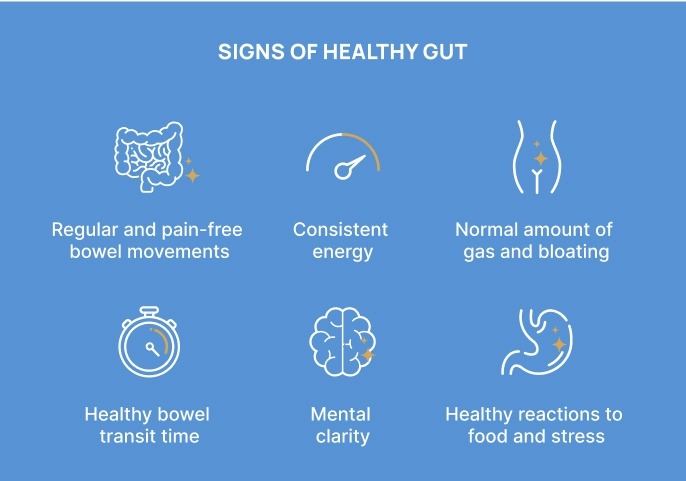
Lookout for some easy-to-spot signs. These symptoms can be caused by multiple issues but gut-health issues could be a primary cause for most of the observable symptoms mentioned below —
- Digestive issues such as bloating, gas, constipation, diarrhoea, or abdominal pain
- Food intolerances or sensitivities — Consuming even small amounts of the offending food can trigger a range of symptoms, which can be severe or life-threatening. In contrast, a food intolerance often affects only the digestive system and causes less serious symptoms.
- Unexplained weight changes
- Fatigue, low energy, or brain fog
- Skin conditions such as eczema or acne — Less common but highly connected to gut health issues.
- Hormonal imbalances
- Mood disorders such as anxiety or depression
So, what can you do to support a healthy gut microbiome and overall digestive health?
One of the most important things we can do is eat a healthy, balanced diet. This means choosing whole, nutrient-dense foods like fruits and vegetables, whole grains, and lean proteins, and avoiding processed foods and added sugars. We can also add foods that are high in probiotics, like yoghurt, kefir, kimchi, and sauerkraut, to promote the growth of beneficial bacteria in our gut.
Stress management is another key factor in supporting gut health. This can include practices like meditation, deep breathing, yoga, and regular exercise, which can all help to reduce stress and promote relaxation.
Reducing our exposure to environmental toxins and pollutants is also important for gut health. This can include choosing organic foods when possible, using natural cleaning and personal care products, and avoiding exposure to secondhand smoke.
Naturally, if the diet and lifestyle factors go for a toss, it is easy to see changes in gut health and some common gut health issues arise. Some of these you would have heard the names of but what do they truly consist of?
Some commonly occurring gut health issues!
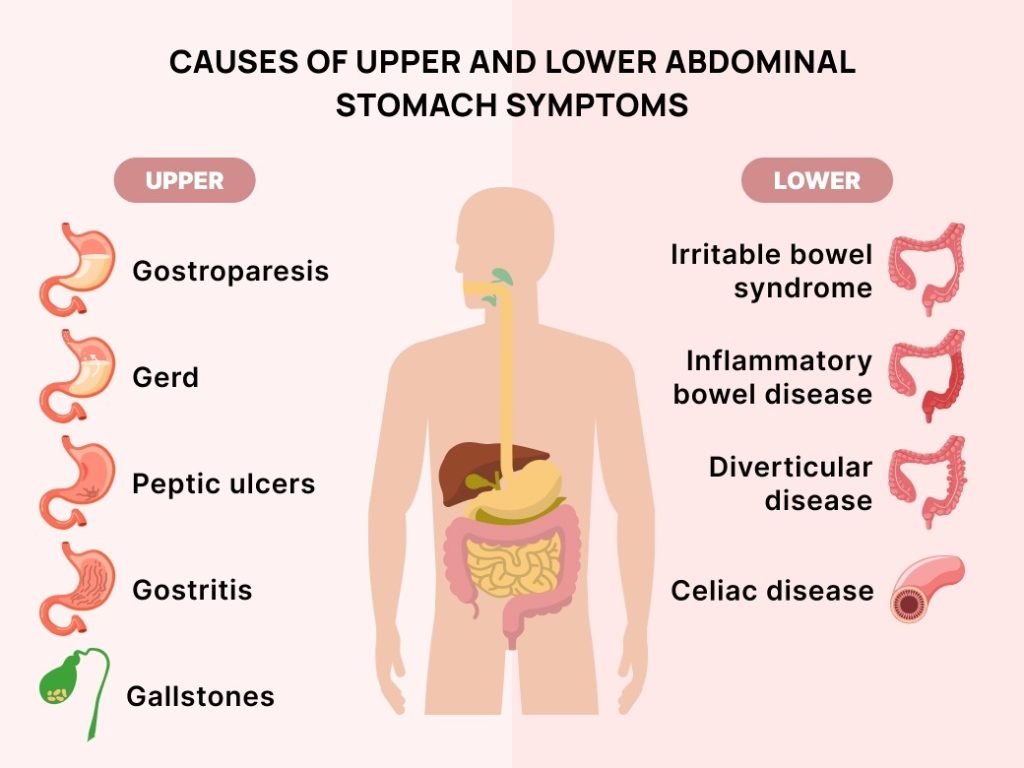
- Irritable bowel syndrome (IBS): IBS is a chronic digestive disorder characterized by symptoms like abdominal pain, bloating, constipation, and diarrhoea. It is a functional disorder, which means there is no structural abnormality in the digestive system. IBS affects between 25 and 45 million people in the United States. About 2 in 3 IBS sufferers are female
- Gastroesophageal reflux disease (GERD): GERD is a digestive disorder in which stomach acid flows back up into the oesophagus, causing symptoms like heartburn, chest pain, and difficulty swallowing. An estimated 1 in every 5 American adults suffers from GERD.
- Inflammatory bowel disease (IBD): IBD is a group of conditions that cause inflammation in the digestive tract, including Crohn’s disease and ulcerative colitis. Symptoms include diarrhoea, abdominal pain, fatigue, and weight loss. An estimated 3.1 million adults (1.3%) in the United States have been diagnosed with inflammatory bowel disease.
- Food intolerances: Many people experience digestive issues like bloating, gas, and diarrhoea after consuming certain foods, like lactose or gluten. About 32 million people have food allergies in the U.S. About 26 million (10.8%) U.S. adults have food allergies. About 5.6 million (7.6%) U.S. children have food allergies.
- Small intestinal bacterial overgrowth (SIBO): SIBO is a condition in which there is an overgrowth of bacteria in the small intestine, which can cause symptoms like abdominal pain, bloating and diarrhoea.
- Diverticulitis: Diverticulitis is a condition in which small pockets in the colon become inflamed, causing abdominal pain, fever, and diarrhoea.
- Celiac disease: Celiac disease is an autoimmune disorder in which the body reacts to gluten, a protein found in wheat, rye, and barley. Symptoms include diarrhoea, abdominal pain, and weight loss. An estimated 1 in 133 Americans, or about 1% of the population, has celiac disease.
How to talk to your doctor about gut-related issues?
If you’re experiencing gut-related issues, it’s important to talk to your doctor about your symptoms and concerns. Start by observing your gut health throughout the day, over time. Observe if you feel differently after consuming a particular drink or food item. Make a mental note of how often you feel bloated, constipated or unnecessarily hungry. Additionally —
- Keep a symptom journal: Before your appointment, keep track of your symptoms in a journal. Note when you experience symptoms, what they feel like, and how long they last. This can help your doctor understand the severity and frequency of your symptoms.
- Be specific: When describing your symptoms to your doctor, be as specific as possible. For example, instead of saying “I have stomach pain,” try to describe the location of the pain, how it feels (e.g. burning, cramping), and when it occurs.
- Be honest about your lifestyle: If you’re experiencing gut-related issues, it’s important, to be honest with your doctor about your lifestyle habits, including your diet, exercise routine, and stress levels. This can help your doctor understand potential triggers for your symptoms.
- Mention any medications or supplements you’re taking: Some medications and supplements can impact gut health, so be sure to mention any that you’re taking to your doctor.
- Ask questions: Don’t be afraid to ask questions about your symptoms and potential causes. Some questions you might consider asking include:
- What could be causing my symptoms?
- How can I manage my symptoms?
- What tests or procedures might be necessary to diagnose my condition?
- Are there any lifestyle changes I can make to improve my gut health?
Conclusion
Taking stock of your gut health and actively working towards improving it is crucial in today’s time. As we depend on takeout food and ready-to-cook meals and foods unwittingly packed with preservatives, our guts are working overtime to make sense of myriad things —naturally prepared as well as more complexly prepared. Add to it the rigour of digesting antibiotics, refined and processed foods and our guts are overworked! The gut is often referred to as the “second brain” for a reason and is imperative to our overall well-being.
Poor gut health has been linked to a wide range of health issues, including digestive problems, autoimmune disorders, allergies, mood disorders, and chronic illnesses. By actively improving your gut health through a balanced diet, stress management, and appropriate medical intervention, you can enhance your overall health and well-being, prevent chronic diseases, and enjoy a better quality of life.









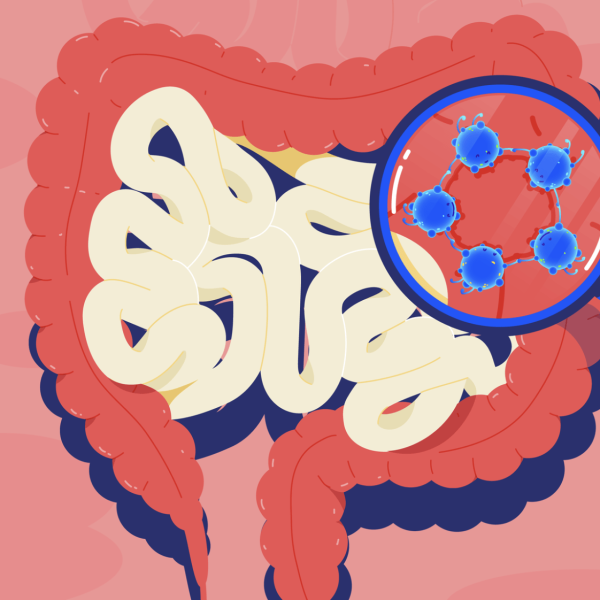

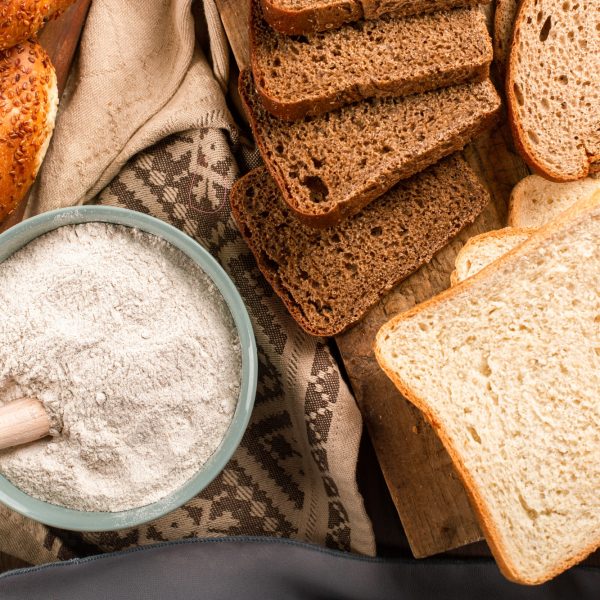











Share this article